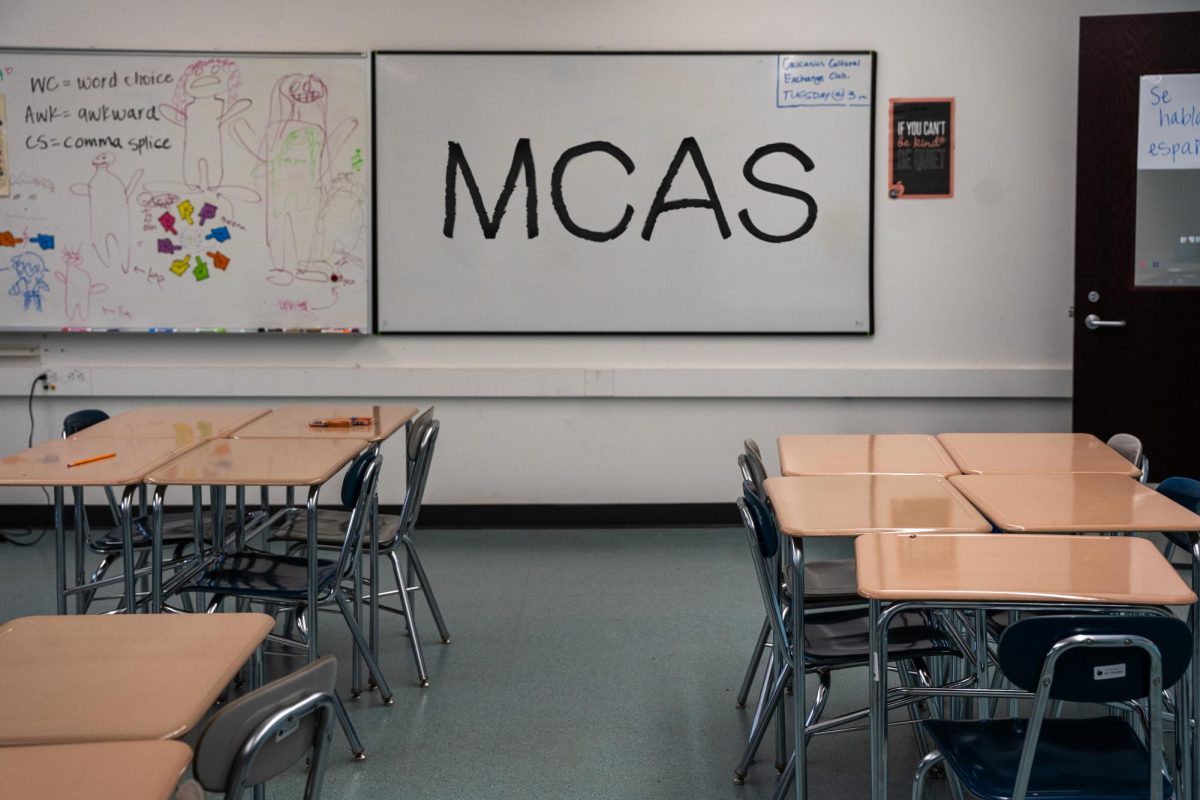In the upcoming election this November, the Massachusetts Teachers Association is petitioning for a ballot question that would address the removal of the state-wide MCAS high school graduation requirement. Currently, all Massachusetts students must earn a passing MCAS score in science, math, and English to be awarded a high school diploma. The effects of the ballot question would not eradicate the exam as a whole; it would only erase the minimum score requirement. Initially, controversy around the state-wide standardized test arose during its creation in 1993, though only recently educators and students alike banded together to receive 135,000 signatures in favor of drafting a ballot question about the matter. The two sides defended their case in front of a special legislative committee last Monday, but their conclusion has yet to be widely publicized.
In recent years, debate has arisen around the standardized exam’s fairness and reflection of knowledge, and in late 2023, serious conversation about lifting the state-wide mandate sparked. The Massachusetts Teachers Association (MTA) is the largest backer of this proposed change, unanimously voting in August in favor of the proposed ballot question. Historically, MCAS’ testing methods have been known to be inequitable towards individuals who are of color, have disabilities, are from low-income families, or are non-native English speakers, amongst other groups. MTA President Max Page, in response to media surrounding possible adaptation to state-wide MCAS regulations, told WBZ TV, “We are a union that is committed to fixing a key part of what is wrong in public schools, that is this over-reliance on high-stakes testing.” Although the proposition has received overwhelming support, the state legislators worry that without a “benchmark” exam, public education will weaken, and leave students unprepared. Following a debate about the matter, Senator Cindy Friedman told NBC Boston, “[MCAS] is the way we assess today what’s going on in this town versus what’s going on in this town, [without MCAS] how do we ensure that our kids, no matter where they live, are getting the education that they need?”
The Massachusetts Comprehensive Assessment System (MCAS) took effect following the early 1990s Massachusetts Education Reform Act, which vouched for statewide educational standards. Initially sparked by a lack of educational consistency and public school underperformance across Massachusetts, the MCAS exam was designed to confirm mastery of science, math, and English language arts skills from elementary to secondary school. MCAS testing appealed to schools as within the Massachusetts Education Reform Act, the measure of ‘baseline’ learning also brought schools a secure amount of state funding.
As Massachusetts discusses the future of state-mandated standardized testing, the Cambridge Public School District expresses its beliefs. Following the notion that Massachusetts was to reconsider the ordinance, the Cambridge School Committee member David J. Weinstein spoke up in agreement, telling The Harvard Crimson, “The test can be a barrier to graduation for students who do not perform well on standardized tests, despite their understanding of the subject.”
Lucia Mindell ’26 shares her opinion on the proposed change. “Removing the ‘passing’ of MCAS as a graduation requirement might cause confusion as to what purpose these inequitable tests serve to students.”















